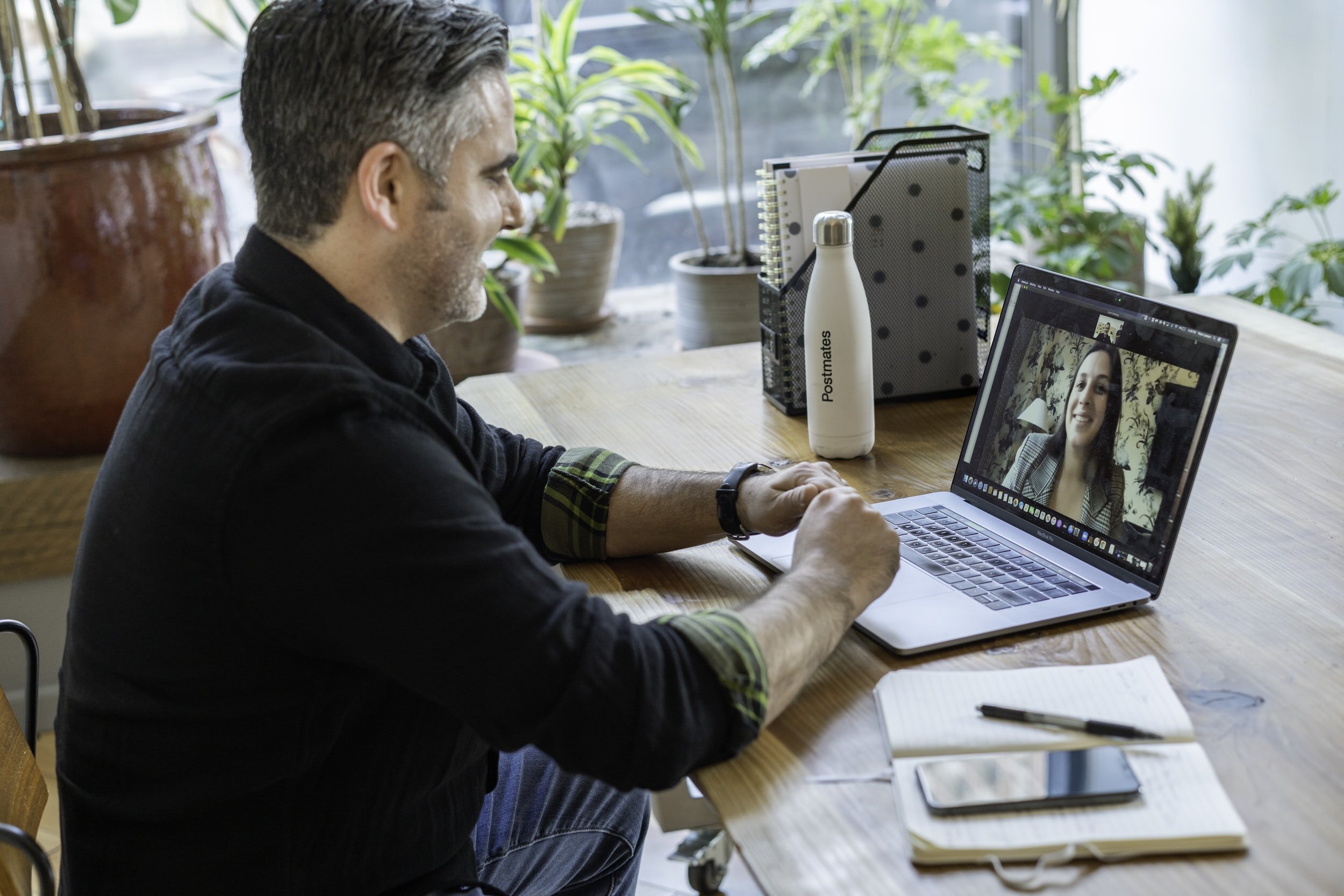Make remote working work for you
As society adjusts to the new, post-Covid normal, much is being said and written about the joys and pitfalls of working from home. Can home life and working life really make the perfect marriage? Diana Dawson of Working Career offers some guidance for remote working.
Before Covid arrived, most of us had experienced a day or two of working from home and relished the break from routine. But now the game has changed. Remote working is here to stay, not just for the odd day but as a way of living. For thousands, possibly millions of workers, there is suddenly a lot to learn and adjust to.
Space to Work
The first priority for remote working is finding a space to work. Virginia Woolf famously knew the importance of ‘a room of one’s own’ for clear thinking (and writing novels); but whether you’re lucky enough to have a spare room, or have to make do with a corner of your living room or kitchen, setting up your workspace at the same location every day will help you get started and stay on task, day after day. Such is the power of association.
Timetabling
Then comes timetabling. Freelancers who have worked at home for years know the value of regular start and finish times; these are behavioural triggers and give much-needed structure to the day. Having a ‘warm-up’ activity that gets you to your workspace in stages can be a great help: making a coffee, maybe changing into something more like your working clothes, or even telling yourself ‘off to work now’ or something equivalent can form links in a chain of behaviours that get you in the mood, and ready to engage your working brain.
Switch off at the end of the day
Switching off at the end of the day is just as important. It deserves its own special moment, and preparation is once again the key. Finish a task, shut down the laptop, stack-up your papers, tell yourself ‘that’s it for today’ and go to a different part of the house. Create a clear boundary between work and home life, and you’ll find it easier to switch into leisure mode. Physical activity at this time of day, especially a short walk, is a powerful reboot for the nervous system, and really helps to refocus attention and relax.
Take a break
If you share your home with others, all of the foregoing depends of course upon some negotiation with them. Not just about your workspace, but about interruptions. How you handle these is possibly the trickiest part of homeworking. It’s all very well insisting that ‘The children need to leave me alone when they get back from school’, but what if the children have something of burning importance to share with you? This is where our next key principle of remote working comes into play: declare a break when you need to – just as you do at the office when the occasion demands it.
Your employer may have a stated policy on breaks, so adapt this when necessary to suit your needs and those of the others in your household. Take the break, then call time and get back to work. And before we leave the topic, do take a proper lunch break. Get up, move around and eat something tasty to reward yourself for a good morning’s work. If you need stimulation after the buzz of working, turn on the radio or listen to music: don’t browse your emails or check over what you’ve done so far. This is your lunch break; make a point of enjoying it.
Stay Connected
Staying connected with the office is a major concern for all remote workers. It’s also a point of difference between those who relish home working and its freedoms, and those who experience loneliness and isolation when cut-off from colleagues. The extraverts among us derive energy from other people, and without interaction find our energy levels plummeting during the day. Introverts, on the other hand, are energised by time spent alone, and indeed may find that working from home boosts productivity. For both groups, having an appropriate, comfortable measure of social contact, whether face-to-face during a walk or perhaps an occasional phone call just to keep in touch, is something to be aware of and plan for.
All remote workers have to join video conferences and conference calls, but even here there’s a danger of not being seen or heard. Be sure to speak up during your meetings, so everyone knows you’re on the call. Even if your actual input is small, a simple ‘Thanks, everyone, bye!’ at the close will go a long way toward making your presence known. You may also need to reach out to colleagues more frequently than normal, letting them know what you are working on and asking the same from them. It all helps to sustain a feeling of shared enterprise and purpose.
More job satisfaction?
Finally, let’s turn again to interruptions – because it is the remote worker’s relative freedom from interruptions that psychologists argue is the key benefit of working away from the office. Being able to concentrate for long periods on a deeply engaging cognitive task without being distracted by interruptions from other people allows us to master complex information more quickly, marshal key points into an argument more effectively, and produce better solutions to problems. This is ‘deep work’, work that makes us better at what we do, and gives us the profound sense of personal fulfilment and meaning that artists and craftspeople enjoy. Instead of passing our working days in a dizzying flurry of emails, time-wasting interruptions and social media posts, working from home offers the chance of deeper engagement with our work and correspondingly greater satisfaction with what we do for a living. Properly handled, homeworking offers a real opportunity to add meaning and depth to our working lives.
I am Diana Dawson, Founder of Working Career. As a Professional Career Coach, Career Psychologist, Career Counsellor, Career Consultant, Executive Coach and Wellbeing at Work Coach, I work with organisations and individuals to help manage their careers.
I am an Accredited Master Coach with the Association for Coaching, a Coaching Psychologist and Cognitive Behavioural Hypnotherapist with nearly 20 years of experience in the field.
I work with professional people from different sectors and backgrounds to cope and flourish at work. I also run Career Workshops and Wellbeing Workshops for organisations.
I can provide one-to-one career coaching in Edinburgh or zoom sessions worldwide. I can provide Career Workshops at your organisation or remotely. Find out more about me here


